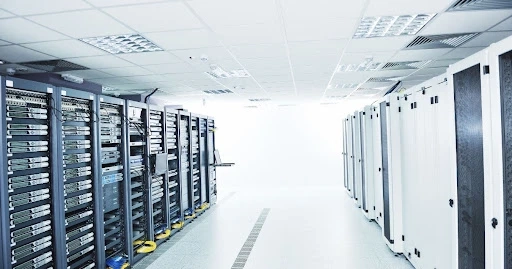Introduction
In today's hyper-connected, data-driven world, businesses are generating vast amounts of data daily. From customer information and transaction records to multimedia files and operational insights, the sheer volume of data is unprecedented. Efficiently storing, managing, and securing this data is not just a business necessity but a critical factor in maintaining a competitive edge. As companies navigate the complexities of digital transformation, ensuring robust and scalable data storage solutions has never been more vital.
What is NAS and Why is it Important?
- Defining Network Attached Storage (NAS)
Network Attached Storage (NAS) is a dedicated file storage system that provides local area network (LAN) nodes with file-based shared storage through a standard Ethernet connection. Essentially, NAS is like a private cloud for your business. Unlike traditional storage systems, Network attached storage offers centralized data storage, making it accessible to multiple users and devices across the network.
- Importance of NAS in Data Storage and Sharing
NAS solutions are designed to be flexible and scalable, allowing businesses to easily expand their storage capacity as they grow. The centralized nature of NAS makes data management more straightforward and efficient, ensuring that files can be easily accessed, shared, and backed up. This ease of access and management is crucial for data-driven businesses where speed and reliability are paramount.
Benefits of NAS for Data-Driven Businesses
- Scalability
One of the standout features of NAS is its scalability. As your business expands, so does your data storage requirement. NAS systems can be easily upgraded with additional drives and storage units, enabling your data infrastructure to grow in tandem with your business needs without significant downtime or complex migrations.
- Security
Data security is a pressing concern for modern businesses, and NAS systems come equipped with robust security features. These include encryption, user authentication, and access controls. Moreover, many NAS devices offer comprehensive backup solutions and disaster recovery options, ensuring that your critical data is protected against loss, corruption, or unauthorized access.
- Accessibility
NAS enables seamless data accessibility, which is essential for fostering collaboration within an organization. Team members can access, share, and work on files from any location, provided they have network access. This accessibility supports remote working environments and enhances productivity by ensuring that data is always available when needed.
Case Studies: Success Stories of NAS Integration
- Case Study 1: Retail Business
A mid-sized retail chain found itself grappling with massive amounts of sales data, inventory lists, and customer records spread across several locations. By integrating a NAS solution, they centralized their data storage, which improved data retrieval times and provided real-time insights into their operations. This change resulted in more efficient inventory management and enhanced customer service.
- Case Study 2: Media Production Company
A media production company dealing with high-resolution video files and graphics required significant storage and quick access to files. Implementing NAS provided them with the necessary storage capacity and the high-speed access needed for editing and collaboration. The NAS system's ability to scale allowed them to accommodate larger projects without a hitch.
How to Choose the Right NAS Solution for Your Business?
- Capacity
Evaluate your current data storage needs and anticipate future growth. It's essential to choose a NAS system that can handle your existing data and can be easily upgraded to meet future requirements.
- Performance
Consider the performance specifications of the NAS device, including read/write speeds, and network throughput. Ensure that the NAS solution you choose can handle the demands of your applications and workflows.
- Budget
While it's crucial to invest in a reliable NAS solution, it's equally important to stay within budget. Compare different options and look for a balance between cost and features. Remember that the cheapest option may not always provide the best value in terms of performance and reliability.
The Future of NAS
NAS technology continues to evolve, integrating advanced features such as cloud connectivity, AI-driven analytics, and enhanced cybersecurity measures. Future NAS solutions will likely offer even greater scalability, better integration with cloud services, and more sophisticated tools for data management and analysis. These advancements will ensure that NAS remains a cornerstone of business data infrastructure, adapting to meet the ever-changing needs of modern enterprises.
Conclusion
In conclusion, Network Attached Storage (NAS) is indispensable for today's data-driven businesses. Its scalability, security, and accessibility make it an ideal solution for managing the vast amounts of data generated daily. By choosing the right NAS solution, businesses can ensure efficient data management, improved collaboration, and enhanced security, all of which are critical for maintaining a competitive edge in the digital landscape. As NAS technology continues to evolve, it will undoubtedly play an even more significant role in shaping the future of business data storage and management.



